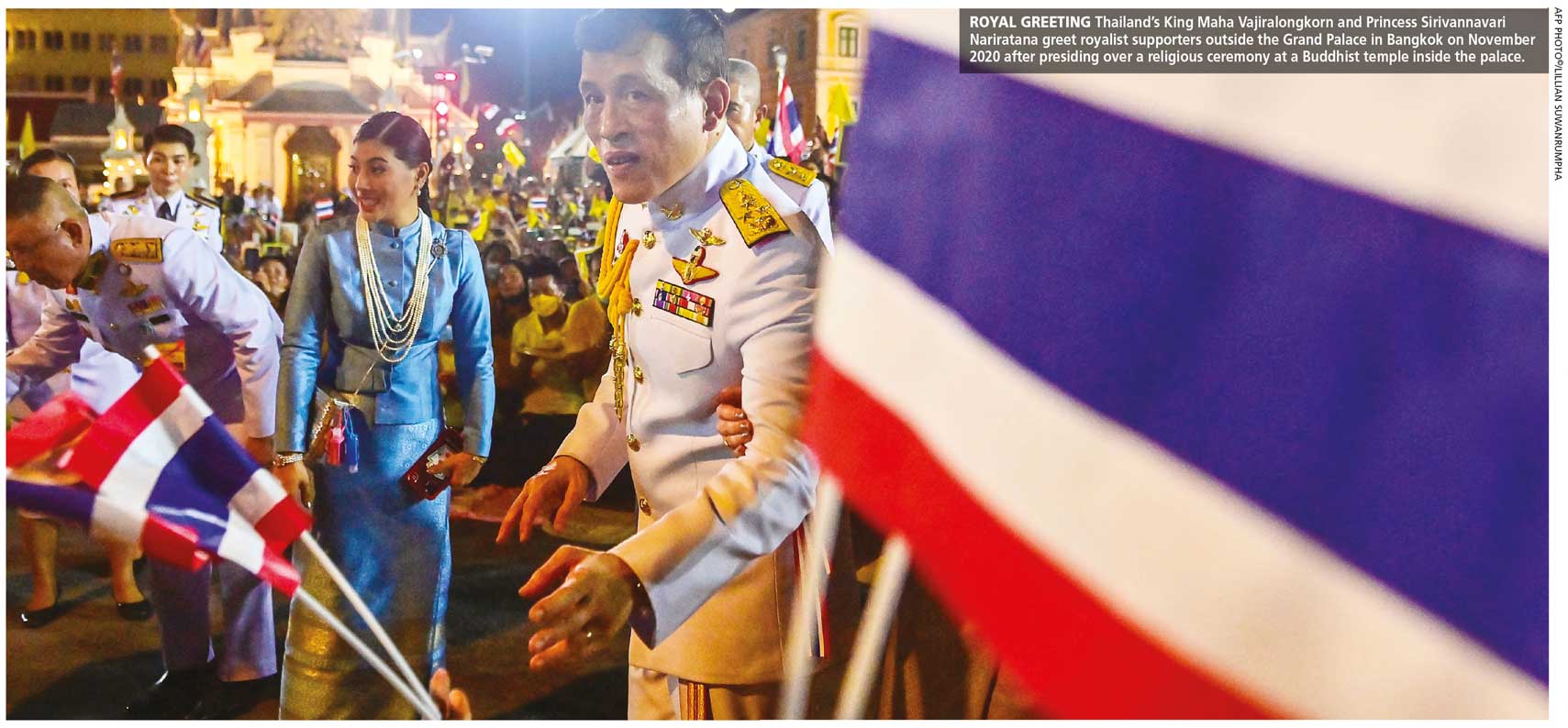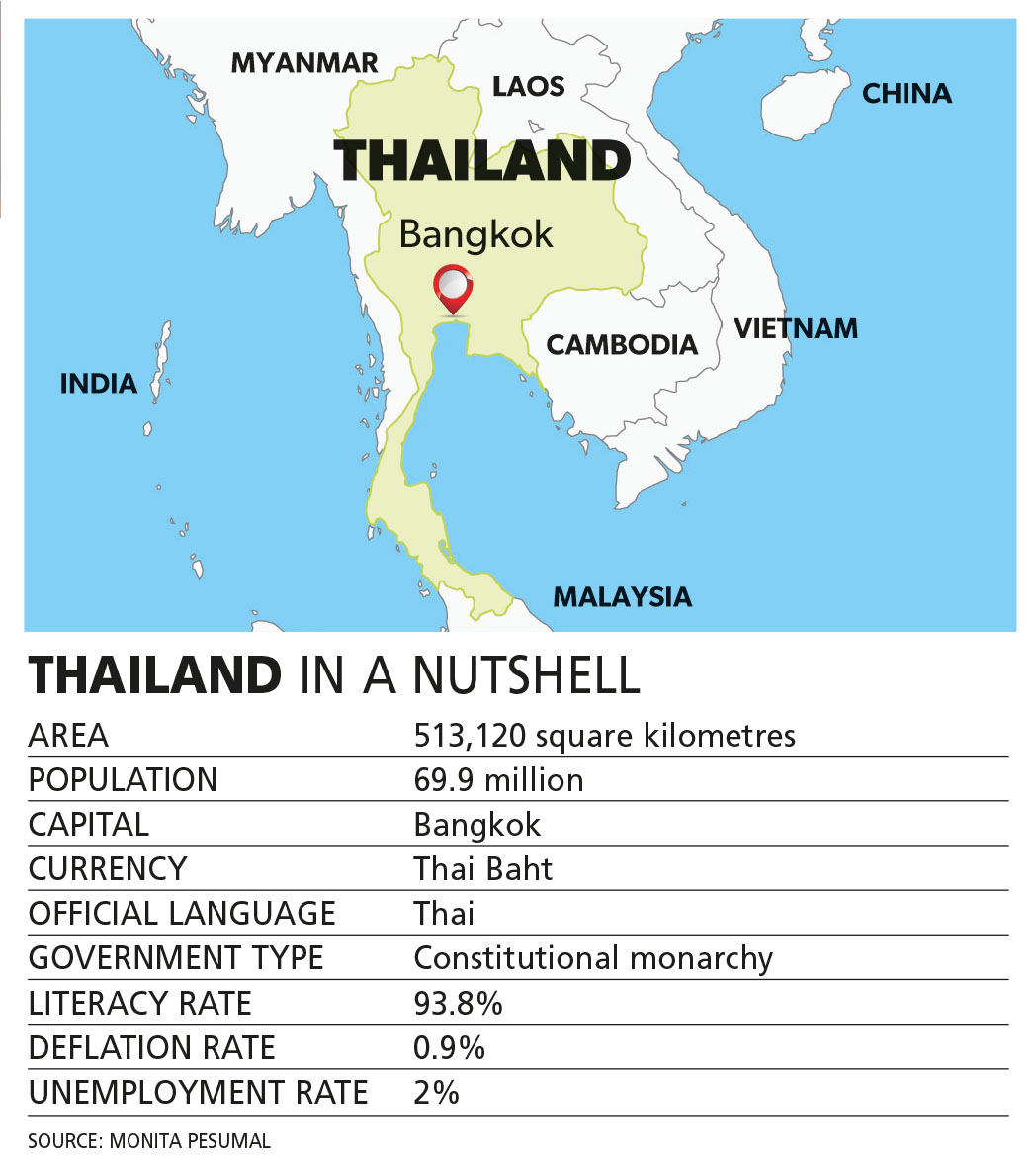THAILAND TODAY
TURBULENCE IN THE KINGDOM
Monita Pesumal captures a snapshot of a historic kingdom that’s been under a cloud in recent years

A quick search for hashtag #Thailand on Twitter reveals the following results in random order: lockdowns amid the COVID-19 pandemic, vaccination drive and updates; nightlife at beachfront restaurants in Ko Samui; and some photos and videos of girls in Pattaya.
Thailand is proud to have become the world’s 22nd largest economy and it’s also ranked among the top 10 economies in Asia. Over the past 40 years, it has progressed from a low-income to an upper middle-income country.
Before the Asian financial crisis in 2007/08, the Thai economy was booming with impressive growth rates between eight and nine percent annually for almost two decades. The impact of the economic crisis meant that growth slowed to hover around five percent annually. The economy is powered by agriculture, manufacturing and services.
 However, like most countries last year, the Thai economy was severely affected by the pandemic; and according to the IMF, the nation’s GDP fell by over six percent in 2020 and many – particularly in the services sector – lost their jobs.
However, like most countries last year, the Thai economy was severely affected by the pandemic; and according to the IMF, the nation’s GDP fell by over six percent in 2020 and many – particularly in the services sector – lost their jobs.
This was despite decisive action being taken early on by the government to implement a package of fiscal, monetary and financial policies to mitigate the impact of the virus on the country. According to the World Bank, preliminary simulations suggest that more than 780,000 additional people could have fallen into poverty last year if the government had not beefed up social assistance and subsidiaries.
The tourism industry – which accounts for about 20 percent of GDP and employment – was especially affected by the cessation of local and inbound tourist travel. Low skilled blue collar and migrant workers were hit hard. Mostly women and youth suffered due to a lack of employment opportunities as a result of reduced economic activity across the country.
In June, the Bank of Thailand cut its GDP growth forecast for this year to 1.8 percent from three percent and the 2022 outlook to 3.9 percent from 4.7 percent due to a lower number of tourists being anticipated.
Thailand recorded 40 million tourist arrivals in 2019 but the expected number in 2021 has been revised down from a previous forecast of between four and five million to a little over half a million.
As of mid-July, Thailand had administered approximately 14.8 million vaccine doses including 10.7 million doses in June alone. Only 16 percent of the country’s population had received even one dose at the time. This prompted the head of Thailand’s National Vaccine Institute to apologise for the country’s slow and inadequate vaccine roll out, and promise that the nation will join the COVAX programme.
COVAX is led by GAVI, the Coalition for Epidemic Preparedness Innovations (CEPI) and the WHO. Its aim is to accelerate the development and manufacturing of COVID-19 vaccines, and guarantee every country in the world fair and equitable access.
Thailand is the only nation in Southeast Asia that didn’t join COVAX. According to a government communiqué, since it’s categorised as a middle-income country, it wouldn’t receive free or cheap vaccines under the facility. It claimed that Thailand would have to pay high prices in advance without knowing which vaccines it would receive and when.
The government planned to administer 100 million jabs this year and has reserved some 105 million doses through several companies. Of those, 61 million doses are AstraZeneca produced by Siam Bioscience, 19.5 million vaccines of Sinovac, 20 million jabs from Pfizer and five million vaccines from Johnson & Johnson.
Incidentally, Siam Bioscience is a wholly owned subsidiary of the Crown Property Bureau, which is worth US$ 33 billion in real estate and investments – and is under the monarch’s personal control.
In October 2016, after 70 years on the throne, Thai King Bhumibol Adulyadej passed away. And when the king died at the age of 88, he was the world’s longest reigning monarch. In December that year, his son Crown Prince Vajiralongkorn was proclaimed King Rama X.
Thailand is a constitutional monarchy and though the king is considered to be above politics, he does wield much authority. He commands an estimated 5,000 troops in the royal guard; and despite decades of political ups and downs, Thai royalty has exerted tremendous influence on the government and people.
At the peak of the pandemic last year, the king was repeatedly criticised for spending a great deal of time in Germany. As cases spiked at home, together with an entourage of 100 staff he was living in a hotel in the Bavarian Alps that was closed to the public.
Upon assuming the throne in 2017, King Rama X made sweeping constitutional changes that outlined what the sovereign could and couldn’t do. He limited the powers of both the Privy Council and royal household to mitigate the risk of a coup during the periods he was away.
He is now able to rule even remotely and this has prompted pro-democracy protests in Thailand. A Thai hashtag translating to ‘#WhyDoWeNeedaKing?’ has been used over a million times on Twitter.



